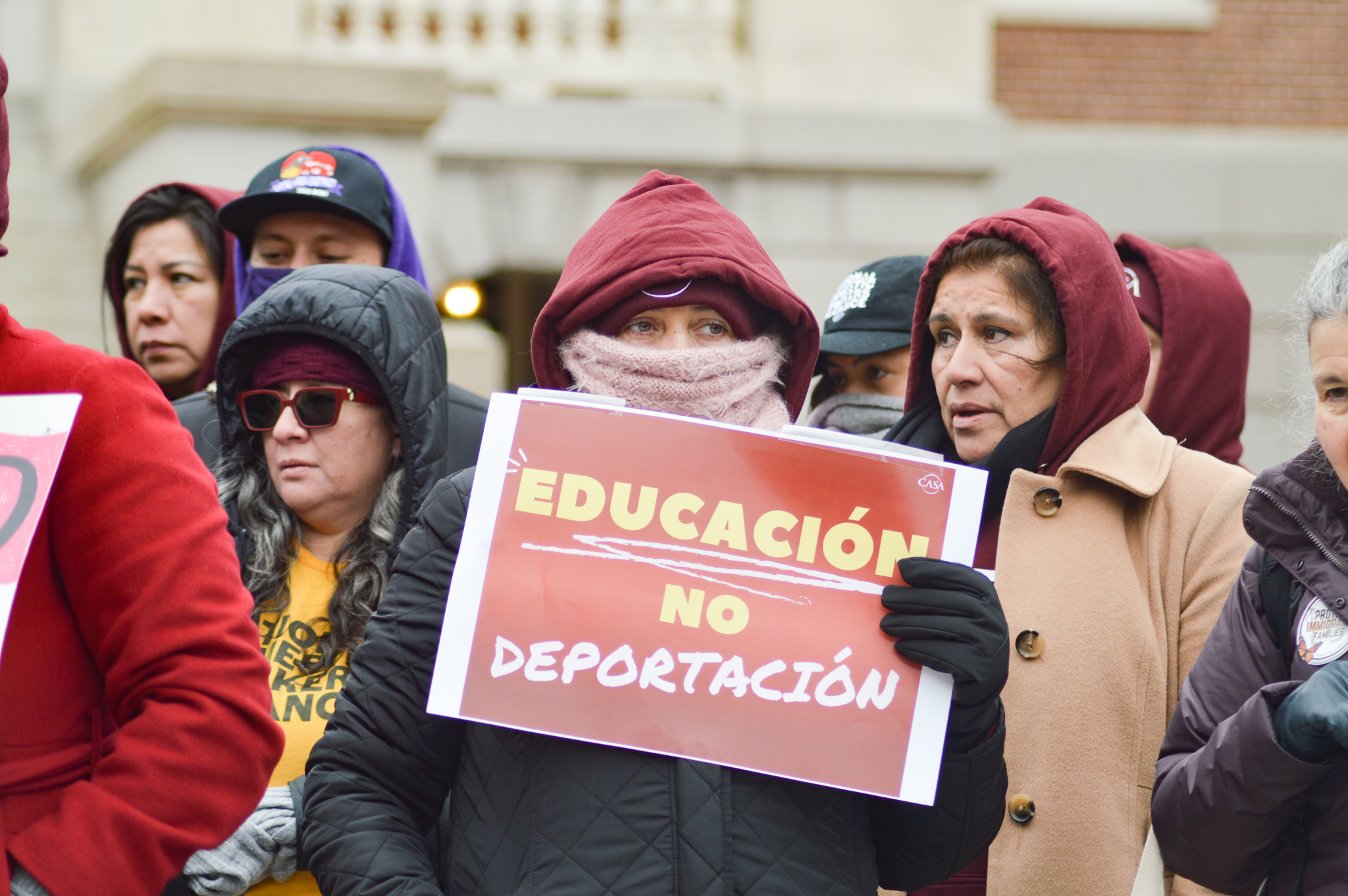Three bills, collectively known as Maryland’s Immigrant Justice Protection Package, aimed at protecting the rights of Maryland’s immigrant community are moving through the Maryland General Assembly.
The bills will help protect immigrants from the Trump administration’s new deportation push, according to Ninfa Amador of CASA, an advocacy and service organization that works with immigrants and working-class families. “Our focus has shifted to ensure that we are at the front lines against Trump’s mass deportations campaign,” she said in an interview with Capital News Service.
Due to an executive order issued by President Trump, Protecting the American People Against Invasion, federal immigration authorities are able to target immigrants solely on their legal status. “This goes to the core of our immigrant families, of individuals who have been in this state for decades, who are the main providers for their families,” said Amador.
What does each act do?
The Protecting Sensitive Locations Act establishes guidelines for ICE’s access to “sensitive locations,” including schools, courthouses, hospitals and places of worship.
“This bill is really working to give our community that vote of confidence that if they take their kids to school, that when they take their toddler to see the pediatrician, that when they go to church, that they are not under the fear and threat of deportation,” said Amador.
Del. Jheanelle Wilkins (D-Montgomery), the bill’s sponsor, told CNS “these residents are our neighbors, our friends, and contribute to the state in countless ways, and it’s important that the state steps up to ensure that we protect our immigrant communities, especially at locations that should be sensitive and sacred.”
The Data Privacy Act is intended to block federal immigration authorities from obtaining access to local and state agency databases so that immigrant families can access government services without fear that their information will be shared with immigration authorities.
The last bill of the package, the Maryland Values Act, targets 287(g) agreements, which allow local enforcement to double as ICE agents, performing and supporting federal immigration enforcement. CASA argued that “these agreements have been repeatedly abused, enabling racist sheriffs to racially profile and target marginalized communities.”
According to The Washington Post, Cecil, Frederick, Harford, Carroll, Garrett, Washington and St. Mary’s counties currently have formal 287(g) agreements in place and several other counties have informal agreements with ICE.
The Maryland Values Act recently had a hearing in the Senate and is awaiting a vote in the Senate Judicial Proceedings Committee according to Amador. She said that the Sensitive Locations Act and the Maryland Data Privacy Act are awaiting a vote in the House Judiciary Committee. All three bills have about a week to be signed into law before the Maryland General Assembly session ends on April 7th.
Immigrant mobility and daily life
The daily lives of immigrants, regardless of their legal status, has been upended by President Trump’s mass deportation campaign, according to Casa.
Amador said that local communities are concerned about ICE enforcement and are taking action to limit possible interactions, including many immigrants not leaving their homes unless absolutely necessary.
“This is limiting people’s freedom of movement, liberty, and really the national rhetoric is one of fear,” according to Amador.
She said that families are dealing with the difficult choices of not sending their children to school or not taking their children to get their vaccines for basic health checkups. Faith leaders are experiencing a decrease in their weekly attendance in immigrant communities.
“Casa and the immigrant community in Maryland is not going to just sit back and hide,” said Amador. Their website also includes a call to action, in which individuals can sign a petition to their state legislators, advocating for these bills to be passed.
CASA also plans to continue connecting directly with community members and hosting “know your rights” clinics. These clinics seek to teach individuals how to exercise their constitutional rights, regardless of legal status.
“When people know their rights, they are protected,” said Amador.

